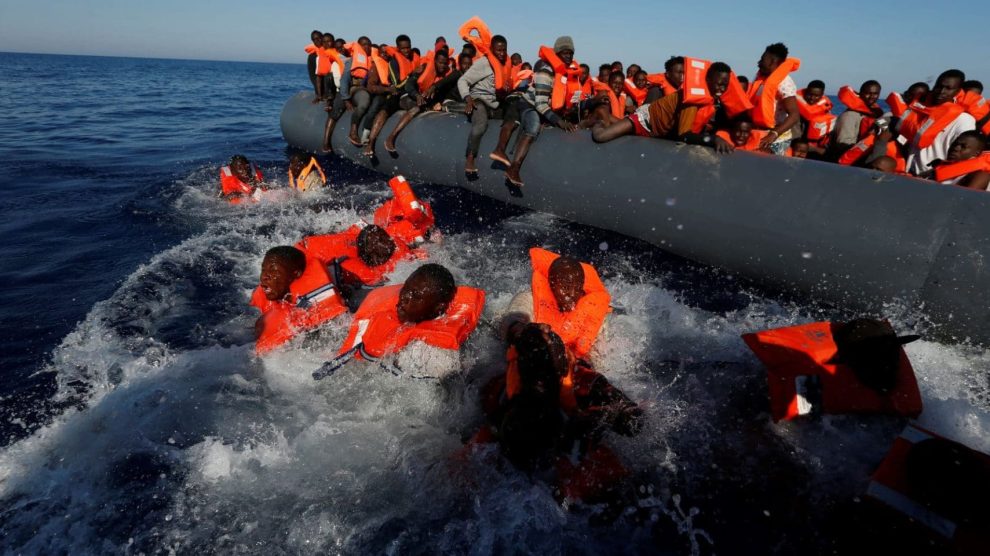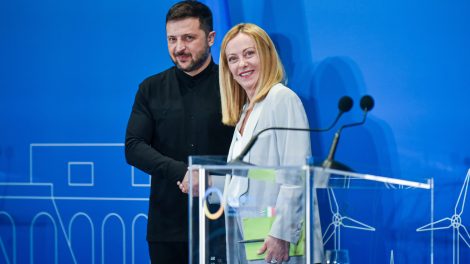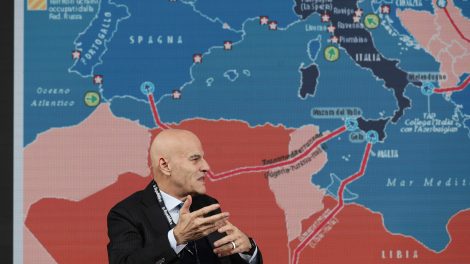Influence + hybrid war. While the eyes of the world are on the Russian war in Ukraine – and the debate on Russian political interference gains centre stage in Italian politics – the Kremlin is working in Africa to reinforce its hybrid aggression against Europe.
- Foreign Minister Sergey Lavrov is on the final leg of a diplomatic tour to consolidate ties and seek the support of African leaders in a bid to counter Russia’s international isolation and stoke anti-Western sentiment by blaming sanctions for the food crisis it engineered.
Favouring migration… The rocketing inflation and scarcity of grain, both direct consequences of Russia’s invasion of Ukraine, are contributing to the destabilisation of African nations. This is a historical factor behind mass migration toward the EU. However, the Kremlin might be fostering the migratory waves even more directly.
… through Russia’s buddies. Repubblica reported a dramatic rise in the number of migrants departing from the swathes of Libya controlled by General Khalifa Haftar, whom Vladimir Putin has been supporting for years.
- There are plenty of Russian mercenaries, known as Wagner Group, in the Haftar-controlled Cyrenaican region. Analysts estimate the numbers range from two to five thousand operatives garrisoned in four military bases (Brak al Shati, Jufrah, Qardabiyah and Al-Khadim). These Russian forces aid General Haftar in remaining firmly in power.
Migrants are leaving Cyrenaica en masse. “They set sail from two areas in particular – the coastlines near the ports of Derna and Tobruk – that were ‘dormant’,” writes the Italian daily. “As the refugees tell those who rescue them at sea, they have become hubs for traffickers again.”
- There have been 38,778 landings in Italy since the beginning of 2022, compared to 27,771 for the whole of 2021 and 12,999 in 2020, at the height of the pandemic. After a lull in February and March, the suspicious surge in April and May continued through June and July.
And right in time for elections, too. As “a qualified source in the Italian security apparatus” told Repubblica, Libya “is a cannon aimed at the electoral campaign: immigration is perhaps the most powerful weapon for those interested in destabilising and, therefore, interfering with the September vote.”
- Incidentally, immigration control is one of Matteo Salvini’s flagship policies. The leader of the League, who played a crucial part in the fall of Mario Draghi’s government and is currently under scrutiny for his alleged coordination with Russian diplomacy, is already campaigning hard on this issue.
Meanwhile, Russia threatens Italy’s energy interests. FM Lavrov’s diplomatic tour, which included Egypt and Congo-Brazzaville, retraces that of Italy, who earlier this year looked south to diversify away from Russian gas.
- Having possibly dropped PM Draghi, Moscow also wants to get rid of his heaviest inheritance: his quick and efficient drive to secure non-Russian gas supplies and reduce the Kremlin’s leverage over Italy, as well as the EU.
- As a consequence, Italy is slated to stop importing Russian gas by 2024.
- MF reported that the caretaker Italian government might ask Claudio Descalzi, head of Italian energy company Eni, to travel back to Africa and meet with local partners to secure the agreements and counter Russia’s actions.




